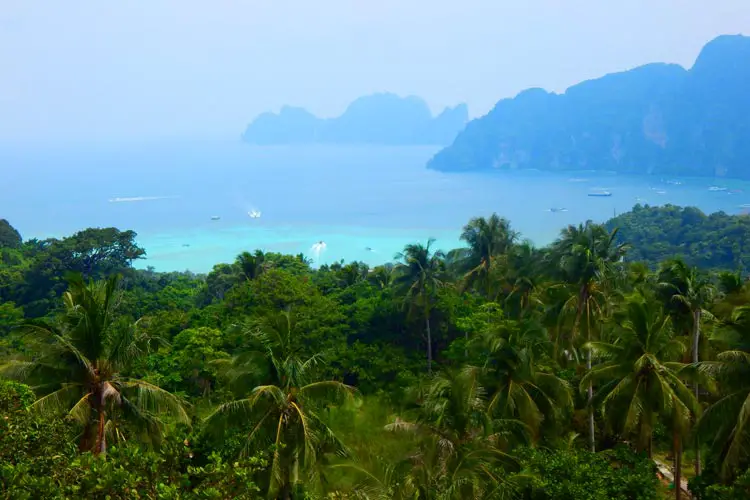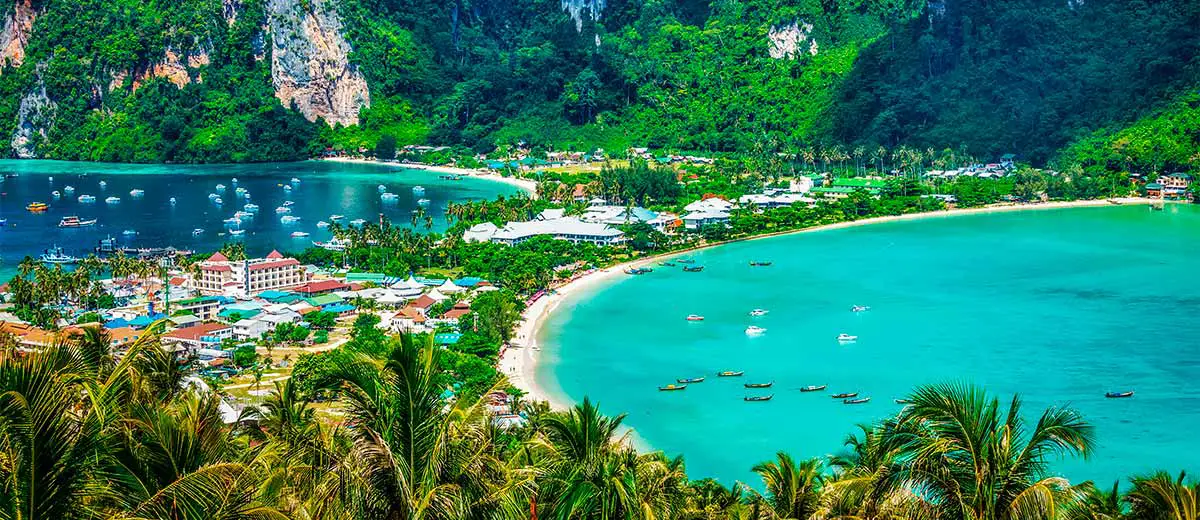The People Effect – Koh Phi Phi
My grandfather, an avid traveller and ecotourist himself, recently shared with me a quote that struck me as a particularly profound thought:
“It is almost axiomatic that as soon as a place gets a reputation for being paradise, it goes to hell.”
The quote comes from Paul Theroux’s 2011 book, The Tao of Travel, a piece of literature highly recommended to anyone interested in the philosophy of travel. Theroux is hardly the first person to notice the inverse relationship between a travel destination’s growth in popularity and its relative beauty. This is especially true for the eco-minded, for whom natural beauty is the primary attractant for any given travel destination. Often, it’s nature that pays the highest price when condominiums, all-inclusive resorts, and five-star restaurants start creeping into the picture.
There a few particularly poignant examples of this principle in action. Bermuda has struck me as one example. Another famous example is Mount Everest. As the world’s tallest mountain, the peak of Everest is quite remote. However, it’s now said that on particularly clear days, when the chance of making a summit is the highest, travellers must wait in a queue near the top of the mountain, waiting their turn for their five minutes at the top of the world.
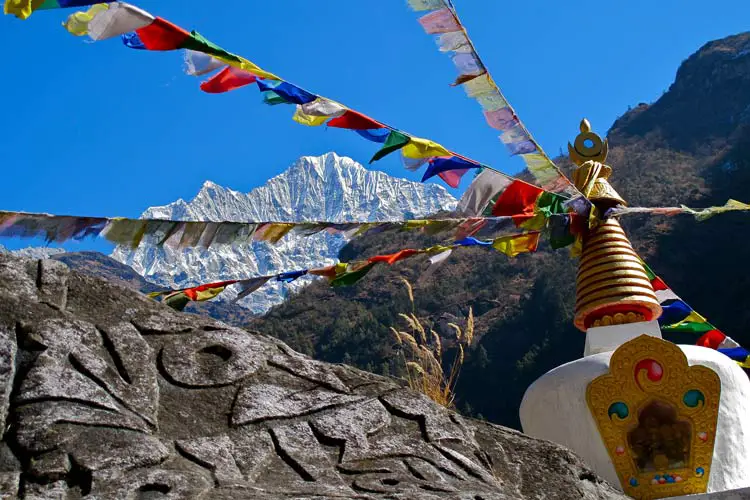
Don’t get me wrong. I’m not saying these places should only be reserved for a select few, nor am I encouraging anyone to refrain from travelling to Bermuda, Everest, or any other destination. It’s just that there’s no denying that something must feel lost when you have to share the place with so many others.
In my travels, I’ve come across a few destinations that speak to this idea. Perhaps the most striking example, however, came during my recent trip through Koh Phi Phi. Readers familiar with the layout of Thailand might know that Koh Phi Phi is a small series of islands, located off Thailand’s western coast between Phuket and Krabi. They may also be aware that the island was the location for the popular Leonardo Dicaprio film, The Beach. Certainly, everyone on the island is aware of this fact, as many had come to the island seeking the sort of remote tropical paradise Dicaprio finds in the film.
Such paradises still exist today, but one will be hard-pressed to find them at Koh Phi Phi. The titular beach, called Maya Beach, is now a very tourist-friendly destination, perfectly suited for the dozens of tour groups which make brief stops there each and every day. The island’s most popular beach is undoubtedly Loh Dalam Bay, though not for its striking natural beauty (though it is quite beautiful).
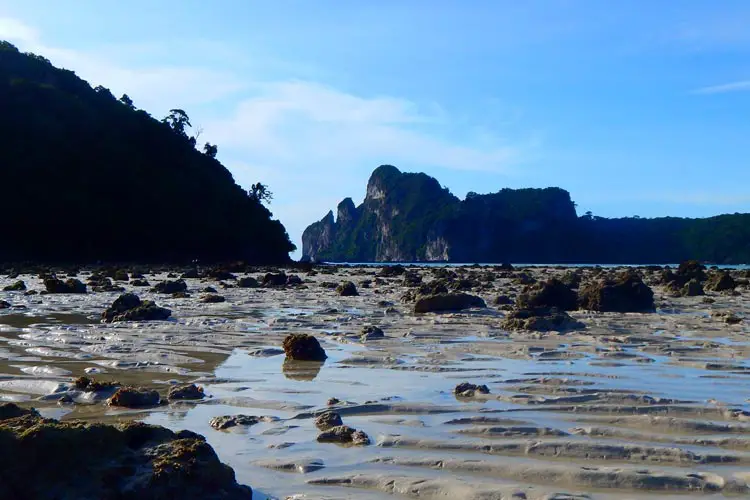
Instead, this beach is the most frequented due to its frankly astonishing number of beach clubs, which blast electronic music throughout the night. In fact, whether you’re partying or not, be prepared to hear the music throughout Phi Phi Don all night, as there’s no escaping the incessant cacophony of techno beats.
Still, I’d highly recommend any travellers to Thailand, but particularly younger backpacker types, to make the trek out to Koh Phi Phi. After reading the above few paragraphs, which were admittedly a bit scathing, readers might be perplexed at my recommendation. However, despite the beach clubs, the development, the ubiquitous tour groups and the unbearable partygoers, Koh Phi Phi still holds an immense amount of beauty. The vast majority of the development on the island is situated on a narrow sandbar between the two sections of the main island, as shown in the following photograph.
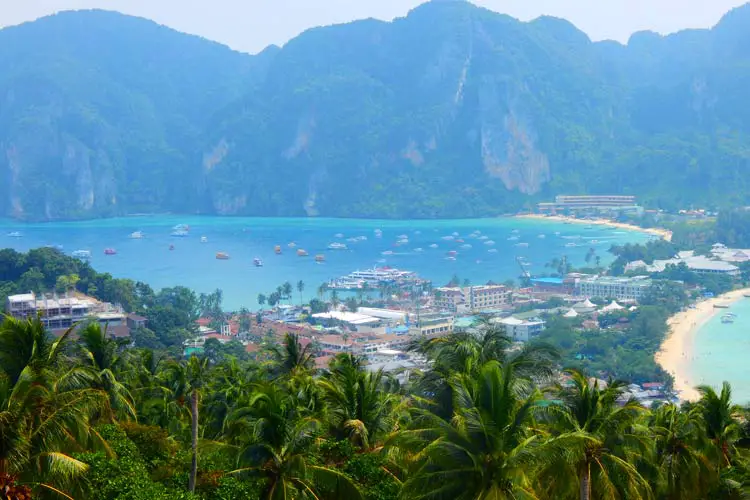
This has two beneficial effects for the ecotourist. First, it means that basically the entirety of the rest of the island, as well all the smaller surrounding islands, have been left more or less untouched. This also includes a handful of beaches. For example, we took a hike to Rantee Beach one day. Although the beachfront itself featured a handful of cottages and even a few restaurants, it felt basically untouched compared to the beaches surrounding Phi Phi Don. What’s more, we hiked through a very pristine, dense jungle to reach the beach. It was clear that this was a path few people ever took, and some sections were extremely difficult to follow. Still, it gave us a glimpse of what the island may have been like long ago. What’s more, Rantee is likely the most accessible of the remote beaches. Though I can’t speak from experience, my guess is that areas like Phak Nam and Loh Lana offer even better chances of untouched natural experiences.
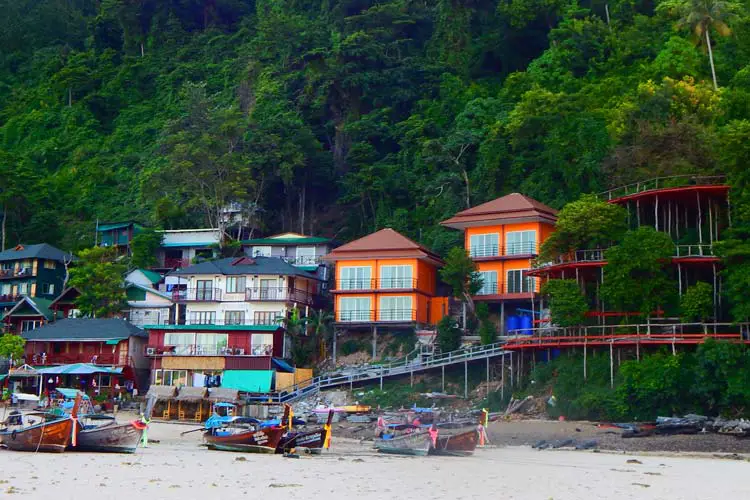
The second effect of all the development being clustered around the one sandbar in Phi Phi Don is that all of the clubs, souvenir shops, and fancy restaurants attract the more annoying types of tourists. There a huge number of people who come to Koh Phi Phi (and really all of Thailand) simply to get drunk and party. While these people are no doubt fun to hang out with, many fail to experience the intricacies of the cultural and natural environments surrounding them. By contrast, experiencing the local culture and natural side of a destination are most ecotourists’ primary reasons for travelling. Due to the size and distribution of development in Koh Phi Phi, ecotourists should have no trouble at all distancing themselves from tourists of different mindsets. What’s more, any other travellers you meet along the trail, at remote beaches, or at other parts of the island are likely to be just as adventurous and eco-minded as you.
That last paragraph touched on the idea of “getting off the beaten path,” which I believe is the solution to the conundrum Paul Theroux proposed in the quote at the beginning of this article. Yes, once a place gains a reputation as a paradise, it may go to hell, but there’s a way around this for ecotourists: go to places without reputations. There are countless places of extreme natural beauty nearly everywhere on planet earth, just begging to be explored, and the vast majority of them have yet to be ruined by tourist hoards. If you really want to see beautiful, natural landscapes that haven’t yet been ruined, it’s your job as an ecotourist to get out there and start experiencing the world, as it was meant to be.
